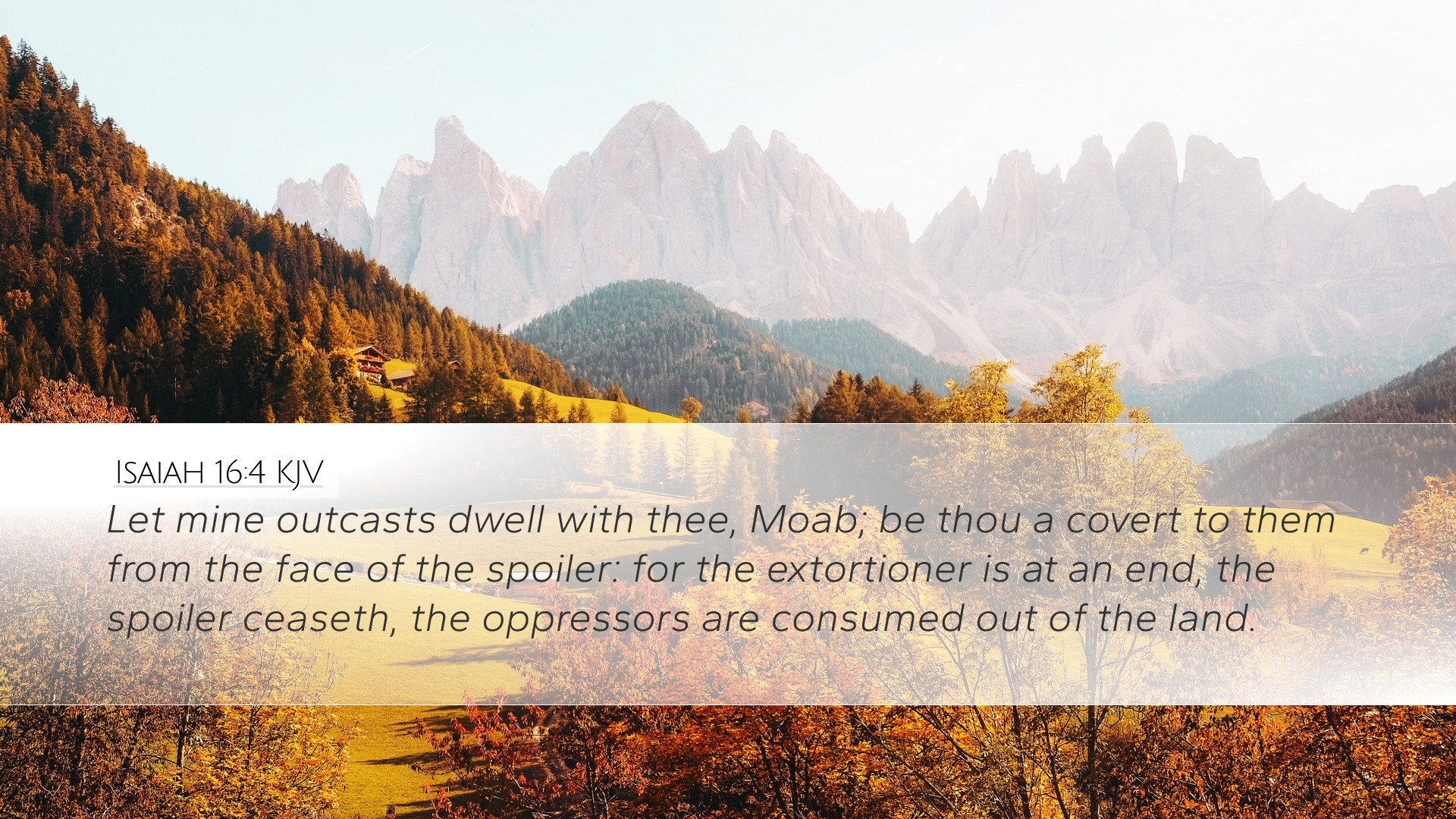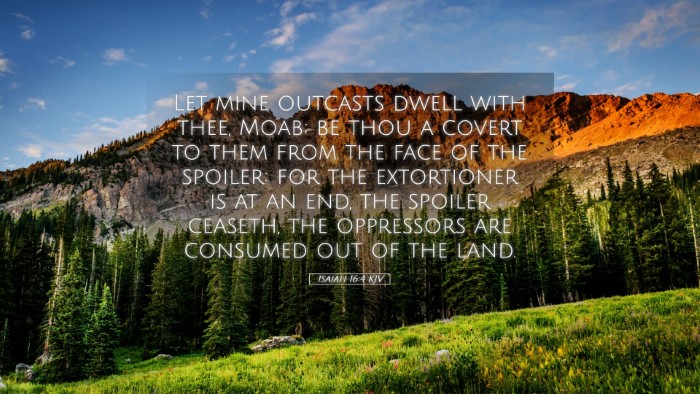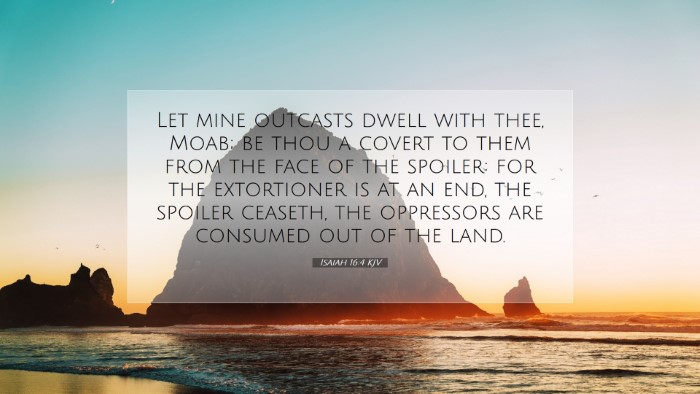Commentary on Isaiah 16:4
Isaiah 16:4 reads: "Let mine outcasts dwell with thee, Moab; be thou a covert to them from the face of the spoiler: for the extortioner is at an end, the spoiler ceaseth, the oppressors are consumed out of the land."
Contextual Background
This verse occurs during a time when the nation of Judah faced existential threats from powerful neighboring nations. The prophet Isaiah conveys God’s message concerning Moab, a nation often at odds with Israel. Despite their history of conflict, God calls on Moab to provide refuge for His people, indicating a shift in focus from judgment to mercy.
Commentary Insights
1. The Call to Moab
Isaiah addresses Moab directly, inviting them to act as a sanctuary for the exiles of Judah. This appeal underscores a significant transformation: God’s provision for His people does not depend solely on their own land but can even come through their adversaries. Matthew Henry notes that this reflects the vastness of God’s mercy and His ability to use unexpected agents to fulfill His purposes.
2. The Outcasts and Their Need
The term 'outcasts' refers to those who have been expelled from their homeland, likely due to warfare. Albert Barnes points out that this denotes a precarious situation where the people of Judah are vulnerable. The appeal for refuge is not merely physical but also spiritual, as they seek solace from the turmoil of their circumstances.
3. Moab as a Covert
Isaiah calls Moab a 'covert', suggesting a protective cover or shelter for the outcasts. This metaphor implies safety, healing, and deliverance in stark contrast to the hostility faced from the surrounding nations. Adam Clarke emphasizes that this designation indicates a divine directive for Moab to provide a safe haven, highlighting God's concern for His people regardless of their location.
4. The Spoiler and Extortioner Ceasing
The mention of the 'extortioner' and 'spoiler' ceasing indicates a significant change in the socio-political landscape. Both Matthew Henry and Albert Barnes emphasize that these forces represent not merely physical oppressors but also spiritual ones. As such, the end of oppression signifies a movement towards justice that aligns with God's redemptive plan.
5. Theological Implications
This verse embodies profound theological truths regarding God’s sovereignty and His care for those in distress. It reflects the theme of God’s providence, indicating that even in times of great turmoil, He provides refuge. Henry articulates this as a testament to God’s fellowship with the oppressed, showing that His eyes are always upon the downtrodden.
Applications for Today
This passage holds significant relevance for contemporary believers and leaders:
- Empathy and Refuge: The call to Moab reminds believers to provide refuge to those in need, echoing Christ's call to love and serve even those outside their community.
- Divine Providence: The assurance that God uses various channels to fulfill His promises encourages believers to trust in His plans even when circumstances seem dire.
- Oppression and Justice: The cessation of oppression becomes a prophetic call to work towards social justice, advocating for the marginalized and oppressed in society today.
Conclusion
Isaiah 16:4 is a profound declaration of mercy and a call for refuge amidst chaos. It emphasizes God's unwavering protection and the theological truth that His providence extends beyond human understanding. In reflecting on this verse, pastors, theologians, and students are are prompted to both recognize their own need for grace and to extend that same grace and refuge to others, fostering a deeper alliance with God's redemptive mission.


